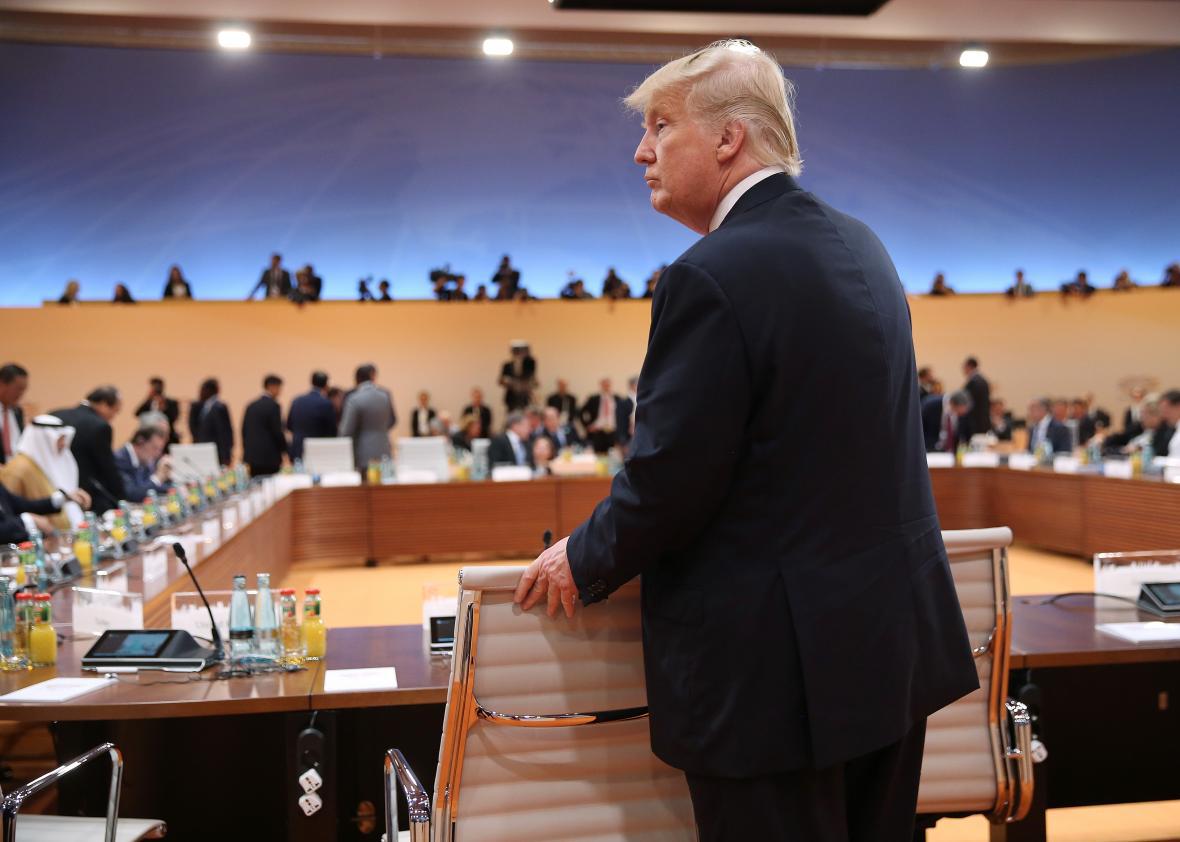The annual Group of 20 meeting is supposed to be one of those boring gatherings where world economic powers get together to slap each other on the back and utter platitudes about things they all agree on. This year though, the conflicts were clear, and the divisions were stark. No split was more evident than climate change, where President Donald Trump was left isolated as every other world leader signed up to the final compromise agreement that declared the Paris accord “irreversible.” They also vowed that the deal would be implemented “swiftly” and without exceptions.
Global leaders didn’t hide their anger at Trump’s intractable position. British Prime Minister Theresa May, for example, said she was “dismayed at the U.S decision to pull out” of the Paris accord and had personally urged Trump to reconsider. German Chancellor Angela Merkel also was careful to highlight the points of disagreement with the United States. “Wherever there is no consensus that can be achieved, disagreement has to be made clear,” Merkel said at the end of the summit. “Unfortunately—and I deplore this—the United States of America left the climate agreement.”
For some the global meeting marked yet another example of how the United States is moving against the current when it comes to the crucial issue—a decision that allies of the former administration say could cost the U.S. economy dearly. “This is a clear indication that the U.S. has isolated itself on climate change once again, and is falling back while all other major economies step up and compete in the clean energy marketplace created by the Paris Agreement estimated to be worth over 20 trillion dollars,” said Andrew Light, a senior climate change adviser at the State Department under President Barack Obama.
European leaders were the ones who most clearly talked about a newly divided world, one where there is now a clear split between Europe and the United States. “Our world has never been so divided,” French President Emmanuel Macron said. “Centrifugal forces have never been so powerful. Our common goods have never been so threatened.”
While climate may have been the issue that saw the starkest division between the United States and the rest of the global economic powers, it was hardly the only one. Merkel admitted as much. “The fact that negotiations on trade were extraordinarily difficult is due to specific positions that the United States has taken,” the German chancellor said.
Although the final communiqué continued to condemn protectionism, it also noted that trade must be “reciprocal and mutually advantageous,” and countries could use “legitimate trade defense instruments” if they feel the situation is unfair. Essentially that was the way the summit recognized Trump’s threat to impose steel tariffs as a way to fight back against what he has described as a dumping of the product in the global marketplace. That’s why Merkel said that even if the global powers were able to agree on most issues, what happens in the future is still up in the air. “The negotiations remain difficult, but we have been able to get satisfactory results in place,” Merkel said. “Now, what’s going to happen tomorrow or the day after, I cannot make any predictions on.”
